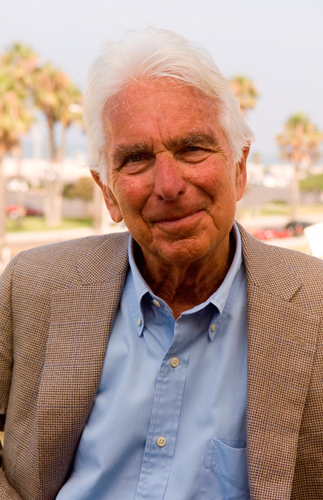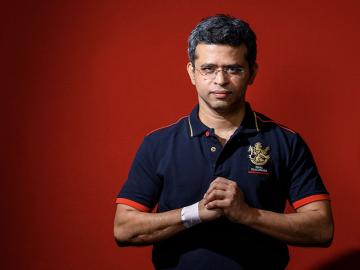
Bennis: "The feeling I get being involved, being needed and of still getting acknowledged…I can’t imagine a better life"
The renowned leadership guru talks about why judgment is more important than experience.
In your work you have found that judgment regularly trumps experience. In fact, you call judgment ‘the core of exemplary leadership’. Please explain.
Last November, The Wall Street Journal published an article that I wrote with Noel Tichy. Hilary Clinton and Barack Obama had just taken their gloves off and were really punching hard at each other -- she emphasizing his lack of experience, he emphasizing her bad judgment, especially on Iraq. I wrote this article not really knowing who I was for or against. Only upon finishing it did I realize I was for Obama. I titled the piece “Experience versus Judgment”, but the Journal changed it to “Judgment Trumps Experience,” which shows that there was a leaning in the article that even I wasn’t aware of.
I believe judgment is the DNA, the basic fundament of leadership. What we are remembered for is really a chronicle of our judgment calls. You remember Nixon because of Watergate; you remember Reagan because he said: "Tear that wall down, Mr. Khrushchev"; or you remember Kennedy’s handling of the Cuban missile crisis. The judgments we make often determine our legacy. With George W. Bush, I have no question that Iraq will be considered one of the most horrid mistakes of American foreign policy.
While nothing is more important than judgment, the odd thing about it is that it’s virtually ignored in much of the business literature. Sure, there is now a sub-field recognized by the American Psychological Association called ‘judgment and decision-making’, and Herbert Simon won a Nobel Prize for his work on ‘bounded rationality’, but not much of it makes its way to the business literature to increase the probability of leaders improving their own everyday judgment calls. It’s sort of like judgment is the Abominable Snowman: its footprints are everywhere, but in itself it is very hard to locate.
How do you define a ‘great group’?
A number of factors go into great groups, but above all there is a strong vision shared by a small group of people. That doesn’t mean that’s there no leadership in the group – I’ll get to that -- but it’s about a shared vision where people feel they are playing for mortal stakes, where they feel they that together, they can put a dent in the universe. There’s a sense of, ‘we’re in this together, diverse as we might be’, and we’re going after something that really could be life-changing -- even world-changing. For the most part, the role of leaders in these groups is to create the stage on which the group can ‘do its thing’. Great university presidents, for example, are actually themselves not necessarily the only voice that matters.
Look at Larry Summers at Harvard: an incredibly smart man of consequence, magnitude and depth, but he never managed to get the people working at other levels in Harvard to work with him, to realize that their fates were correlated. Last night, I went to see the movie version of the Met’s Damnation of Faust, directed by your fellow Canadian Robert Lepage. The production was so brilliant because the singers were at their very best, and the settings only enhanced all the voices. Even though they have likely come up with the vision, the leaders of these groups let other people shine.
Another thing about a great group is that piling up the résumés doesn’t amount to much. Getting people to play together in the same sandbox -- that’s what great groups are about. Finally, I would just say that most great groups actually produce something. As Steve Jobs once put it, ‘Great groups must get something out the door’. When I was at MIT years ago, I had three or four colleagues and we were all new to the place. We knew that we were fated to work together, so we would meet every Friday at the Faculty Club and talk about how we could work together. While these were very interesting conversations, we were getting nowhere – it was all just words until one of us said, hey, let’s do a book together. So we wrote a book -- Essays in Readings and Interpersonal Dynamics by Bennis, Schein, Berlew and Steele – and it went into five editions.
Why is the Buddhist idea of the ‘beginner’s mind’ so relevant to business today?
This makes me think again of last November’s election in the U.S. During the primaries, Mrs. Clinton announced that she ‘would be ready on Day One’. I don’t believe that anybody is ready on Day One: there is so much of what Clay Christensen has referred to as ‘disruptive innovation’, that to say that you will be ready on Day One is kind of ridiculous. Nobody can be ready for all the surprises, the inflection points and the contingencies that get more complex by the day due to globalization and technology. The beginner’s mind is about being able to freshly imagine a situation. All too often, we just keep on ‘fighting the last war’. Some of the habits that result from that are important, but there’s a line in Samuel Beckett’s Waiting for Godot in which one of the characters says to the other, ‘habit is a great deadener’.
At MIT we used to take pride in a phrase that we used, which was ‘we’ve got all the habits of success’. Yes, you need experience, you need successful habits, but especially these days, a beginner’s mind that is open to new experiences and open to surprise is the most critical thing to have. We can be as prepared as can be – arm ourselves with an MBA or a PhD -- but who knows what’s going to happen next? It is important to think continually anew about things, and get ‘disenthralled with the past’, as Abraham Lincoln put it.
To what do you attribute your own remarkable staying power as a thought leader?
At this point in my life, I view myself as a master of my subject matter and a teacher. What keeps me going is the joy I get from the work I do. For me, it’s all about the teaching and the writing -- it has nothing to do with ‘leading’. I was president of a University for seven years, and that was fine, but I realized that sort of role wasn’t for me. I don’t think I would still be at it today if I had remained a university administrator. But as a teacher and writer, at the age of 83 I’m currently working on two new books. I’m just finishing one that is tentatively called A Warren Bennis Reader. I got to pick out the articles I’ve written that I felt were the juiciest, and ask someone to write a short essay about each. One of them (from 1966) is called “The Coming Death of Bureaucracy,” and Tom Peters signed on to write about that one. Glenn Close will respond to an unpublished article, “Get Real: Leadership as a Performing Art; and Rosabeth Moss Kanter will respond to my and Phil Slater’s 1964 article, “Democracy is Inevitable.” It should be out in June.
I feel the most alive when I’m in a conversation. That’s what I think good teaching is all about -- and, by the way, that’s what good leadership is all about, too. What keeps me going is the unmitigated love I have for what I do and the achievements of my students as their lives progress. I talked about legacy earlier. I was recently given an honorary degree, and as we were being disrobed of our caps and gowns, a woman came over to me. She was Dean of the college, and she said, ‘During the announcement of your degree, I learned a lot: I never knew you that you were responsible for making our university a fully-supported state university, which made us solvent, but I do remember in your book Why Leaders Can’t Lead, on page 22, where you wrote about the unconscious collusion between leaders and the led and why we resist change.” It was my writing, not my status, that was most meaningful. That’s what keeps me going.
A famous tightrope walker named Karl Wallenda once said, “The only time I feel alive is when I’m walking the tightrope. All the rest is waiting’. Now that’s not entirely true of me, but the feeling I get being involved, being needed and of still getting acknowledged…I can’t imagine a better life.
Warren Bennis is University Professor and Distinguished Professor of Business Administration and Founding Chairman of The Leadership Institute at the University of Southern California. He also serves as chairman of the advisory board of the Center for Public Leadership at Harvard University's Kennedy School, He has written or edited 30 books, including the best selling Leaders and On Becoming a Leader, both translated into over 20 languages. He has served on four U.S. Presidential Advisory Boards and has consulted for many Fortune 500 companies, including G.E., Ford, and Starbucks.
[This article has been reprinted, with permission, from Rotman Management, the magazine of the University of Toronto's Rotman School of Management]















